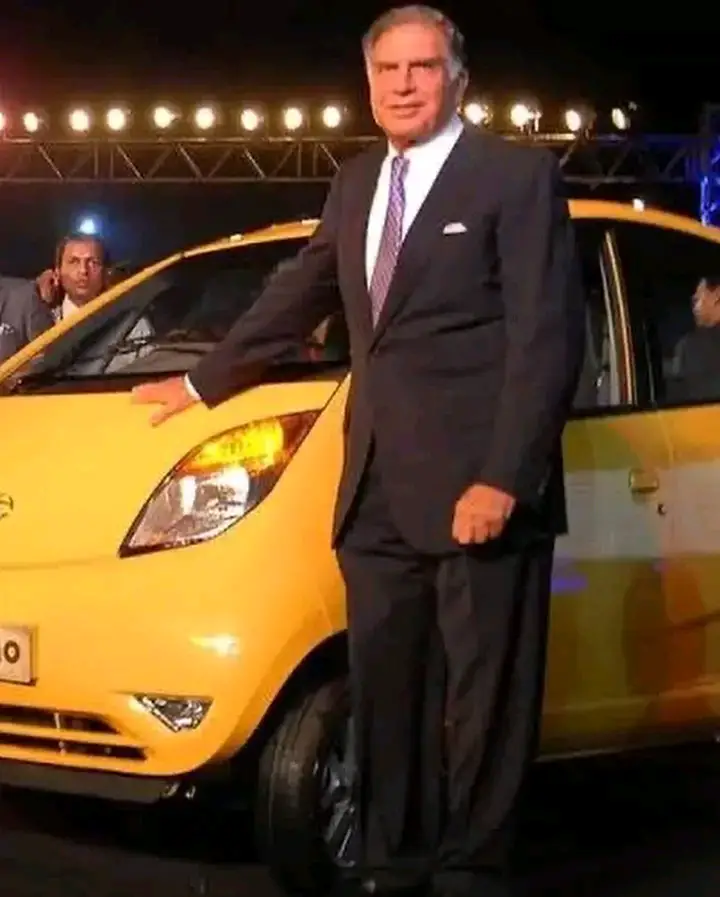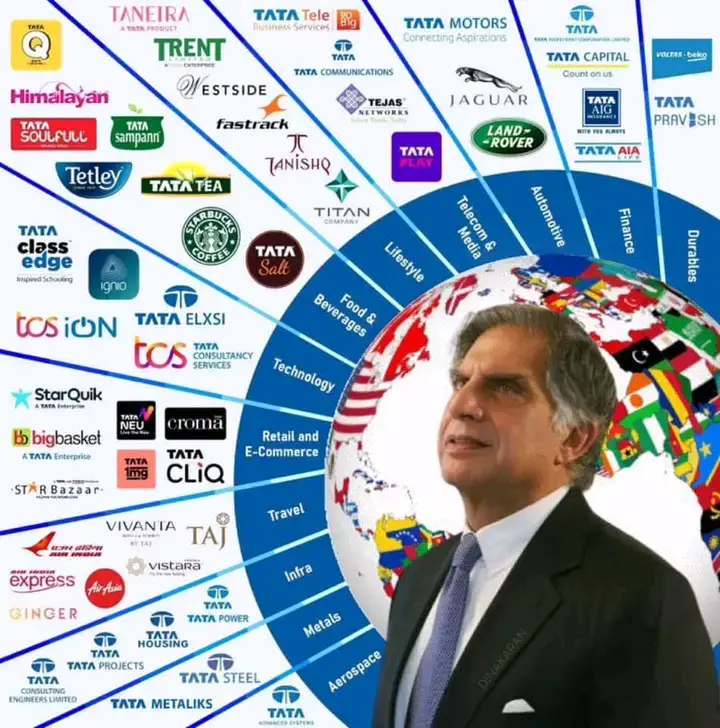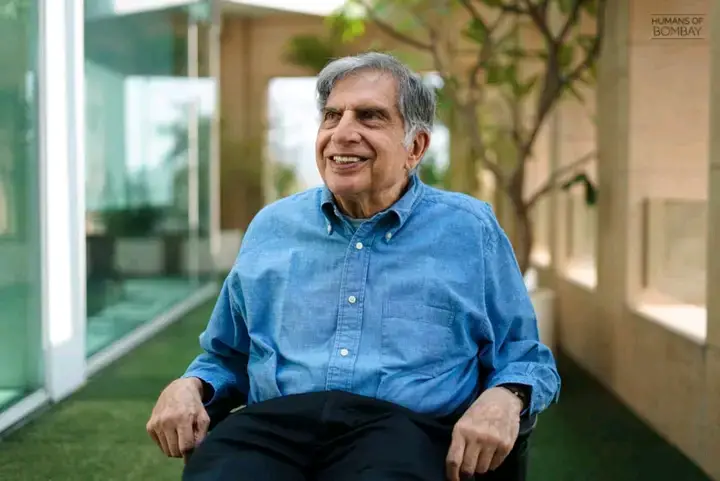Indian business tycoon Ratan Tata dies
Ratan Tata, one of India’s most revered industrialists, has passed away at the age of 86. His death marks the end of an era for Indian business and global industry, as Tata was not only a leader in transforming the Tata Group into a global conglomerate but also a pioneer in philanthropy, innovation, and ethical business practices. Over the course of his leadership, Ratan Tata left a profound impact on industries worldwide, becoming a symbol of integrity, social responsibility, and corporate success.
Early Life and EducationBorn on December 28, 1937, in Mumbai, Ratan Naval Tata belonged to a prominent Parsi family. His grandfather, Jamsetji Tata, founded Tata Group, a company that would grow into one of India’s largest and most respected business conglomerates. However, Ratan Tata’s early life was not devoid of challenges. His parents separated when he was just 10 years old, and he was subsequently raised by his grandmother, Navajbai Tata. This experience shaped his character, instilling in him resilience, humility, and a sense of responsibility.Ratan Tata pursued his education in architecture at Cornell University and later completed an Advanced Management Program at Harvard Business School in 1975. His academic background in architecture would later influence his leadership style, which was marked by innovation and an eye for detail. However, his career in the family business began much earlier, in 1962, when he joined Tata Sons and gained hands-on experience working on the shop floor. This period exposed him to the intricacies of running a business, which would prove invaluable when he took over the reins of Tata Group decades later.

Career and Leadership at Tata GroupRatan Tata’s rise within the Tata Group was gradual, yet impactful. He held various leadership roles, including those at NELCO and Empress Mills, two Tata companies that were facing difficulties at the time. Despite his efforts to revive these businesses, they eventually had to be shut down. However, these early setbacks did not deter Tata’s determination to lead the conglomerate to greater heights.In 1991, Ratan Tata was appointed as the Chairman of Tata Group, succeeding J.R.D. Tata. At the time, his leadership was met with skepticism. There were doubts about whether he could live up to the legacy of his predecessors. However, Ratan Tata quickly dispelled these doubts by modernizing the company, restructuring its management, and steering it toward international expansion. His vision for Tata Group was one that embraced both innovation and social responsibility, and his leadership reflected a balance between financial growth and ethical practices.Under his guidance, Tata Group diversified its operations, entering new sectors such as steel, automobiles, telecommunications, and information technology. Some of the most notable acquisitions during his tenure included Tetley Tea in 2000, Corus Steel in 2007, and Jaguar Land Rover in 2008. These deals not only expanded Tata Group’s global footprint but also cemented its reputation as a leading player in multiple industries.One of Ratan Tata’s most ambitious projects was the launch of the Tata Nano in 2008. Marketed as the world’s cheapest car, the Tata Nano aimed to make car ownership accessible to the masses in India. While the car did not achieve long-term commercial success, it demonstrated Tata’s commitment to innovation and his desire to improve the quality of life for average Indians. It also reinforced his belief that businesses should serve a larger social purpose, a principle that would guide his leadership throughout his career.

Philanthropy and Social ContributionsRatan Tata’s legacy extends far beyond his contributions to the business world. He was deeply committed to philanthropy, dedicating a significant portion of his wealth to charitable causes. Over 65% of Tata Sons’ shares are held by various charitable trusts, which fund initiatives in education, healthcare, and social development. These trusts have played a crucial role in uplifting communities across India, providing scholarships, building hospitals, and supporting rural development projects.One of the most notable philanthropic endeavors led by Tata was the establishment of the Tata Institute of Social Sciences and the Tata Memorial Hospital, both of which have become pillars of education and healthcare in India. Additionally, Tata’s contributions to higher education in India and abroad have benefited countless students, particularly through his generous donations to institutions like Cornell University and Harvard Business School.Tata’s commitment to social causes was also evident in his response to crises, such as the 2008 Mumbai terrorist attacks. In the aftermath of the attacks, Tata personally oversaw the rehabilitation efforts for those affected, providing financial aid and support to the victims and their families. His actions during this difficult time demonstrated his deep sense of responsibility and compassion for his fellow citizens.
Awards and RecognitionRatan Tata’s contributions to business and society have earned him numerous accolades, both in India and internationally. In 2000, he was awarded the Padma Bhushan, one of India’s highest civilian honors, and in 2008, he received the Padma Vibhushan, the second-highest civilian award. These awards recognized his contributions to the growth of Indian industry, as well as his commitment to philanthropy and social development.In addition to national honors, Tata was also recognized on the global stage. In 2010, he was awarded the Oslo Business for Peace Award, which acknowledged his efforts to promote ethical business practices. Four years later, Queen Elizabeth II conferred upon him the Knight Grand Cross of the Order of the British Empire, one of the highest civilian honors in the United Kingdom. These awards reflect the global impact of Tata’s leadership and his unwavering commitment to improving the world through business.
Life After RetirementEven after stepping down as Chairman of Tata Group in 2012, Ratan Tata remained active in both business and philanthropy. He continued to mentor young entrepreneurs and invested in promising startups, particularly in the fields of technology and e-commerce. His investments in companies like Ola, Paytm, and Snapdeal underscored his belief in the potential of India’s startup ecosystem and his desire to support the next generation of innovators.Despite his high-profile career, Tata was known for his simplicity and humility. He lived in a modest home in Mumbai and was often seen driving himself around in a Tata sedan. He never married, and those who knew him described him as a man who valued personal relationships over material wealth.
LegacyRatan Tata’s passing marks the end of a remarkable chapter in the history of Indian business. His leadership transformed the Tata Group into a global conglomerate, and his philanthropic contributions have left an indelible mark on society. More than just a businessman, Tata was a visionary who believed that companies should strive to make the world a better place. His legacy will continue to inspire future generations of leaders to prioritize ethical business practices, social responsibility, and compassion for those in need.In the words of Ratan Tata himself, “One day you will realize that material things mean nothing. All that matters is the well-being of the people you love.” His life and legacy serve as a testament to these values, and his impact on India and the world will be felt for years to come.






